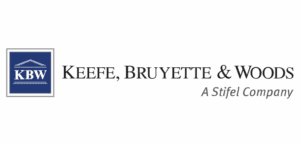Personal auto insurance on the mend, but homeowners’ still volatile – Fitch

Personal auto insurance on the mend, but homeowners’ still volatile – Fitch | Insurance Business America
Property
Personal auto insurance on the mend, but homeowners’ still volatile – Fitch
Higher reinsurance costs for property remains a major concern
Property
By
Kenneth Araullo
The US personal insurance sector is poised for improved underwriting performance in 2024, according to Fitch Ratings.
This outlook comes as the previous surge in claims severity due to higher inflation and supply chain shortages has eased, and significant rate increases have driven rapid written premium growth.
In 2023, the US personal lines insurance sector experienced its third consecutive year of underwriting losses, with the statutory combined ratio (CR) declining to 107% from 110% in 2022. Personal lines insurance is the largest sector of the US property and casualty (P&C) insurance market, accounting for over 51% of industry net written premiums (NWP) in 2023.
Private passenger auto insurance, including liability and physical damage, remains the largest product line, with NWP of $307 billion in 2023, and written premiums grew by over 14% due to substantial price increases.
Fitch Ratings anticipates that sustained pricing momentum in 2024 and tapering claims trends for personal auto insurance will lead to break-even results or better for the year. However, the pace of recovery will vary among insurers.
The personal auto line experienced significant volatility over the past four years, with record underwriting profits in 2020 due to pandemic-related declines in miles driven and claims frequency, followed by a 112% segment CR in 2022. Substantial rate increases and underwriting actions led to a considerably improved ratio of 105% in 2023.
In the homeowners’ segment, sharp price increases are expected to foster improved results in 2024. However, potential volatility from natural catastrophe losses and higher reinsurance costs remain concerns. The segment has reported underwriting losses in six of the past seven years, including a 111% CR in 2023.
Despite no major hurricane-related losses, insured losses from numerous inland convective storm events and increased loss severity due to rising building material and contract labor costs adversely affected results.
What are your thoughts on this story? Please feel free to share your comments below.
Related Stories
Keep up with the latest news and events
Join our mailing list, it’s free!





